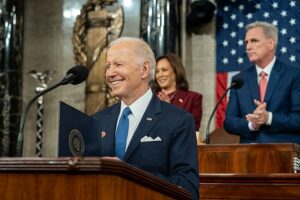Monday Briefing | February 2, 2015

Source: Panoramio

Monday Briefing | February 2
Welcome to the first entry in our new Monday Briefing series. The Monday Briefing intends to provide the student community with information on several salient political developments leading into the week, as well as notable events pertaining to politics and international relations within the NYU community and throughout New York City in the week ahead.
Contributors to the Monday Briefing select stories, media, and events that they believe are most relevant and interesting to the student body.
Stories to Follow this Week
The United States Considers Military Aid to Ukraine
Amidst growing concern over the increasing mobilization of pro-Russian separatist forces, the United States is now considering providing military aid to Ukraine. While President Obama has yet to make a decision, Defense Secretary Chuck Hagel and NATO’s military commander General Philip M. Breedlove are reported to support the supply of arms to Ukrainian forces. Over the course of the conflict between Ukraine and pro-Russian separatists in the Eastern part of the country, the United States has hesitated to provide aid to the Ukrainian military, out of concern that doing so would provoke Russia at a time where tensions are already high. This week, Secretary of State John Kerry will visit Kiev to meet with Ukrainian president Petro Poroshenko and other government officials.
Read more on this story at the New York Times, The Guardian, and PBS News.
Rate of Ebola Drops Below Health Experts’ Predictions
New numbers show that the number of newly infected people has dropped sharply in the three countries most affected by the outbreak: Liberia, Guinea and Sierra Leone. Large-scale trials for new Ebola vaccines are scheduled to commence in Liberia. While some news outlets are reporting that these trials are now underway, other sources claim that the trials have actually been halted due to an insufficient number of participants. The World Health Organization reports that the virus has killed roughly 8,800 people and sickened more than 22,000. These figures, however, are much lower than the dire predictions previously made by health officials. The decreasing rate of new cases has been attributed partly to aid from the United States and international organizations, but also to precautions and efforts undertaken by local communities. Concerns have emerged however that Ebola may be mutating. Ebola is an RNA virus, like influenza or the measles, and capable of rapid and frequent mutation. Communities in which residents do not trust aid groups remain particularly vulnerable.
Read further information from The Atlantic, Al Jazeera, the New York Times, and BBC News.
In an opinion piece for the New York Times, Rachel Glennerster, Herbert M’Cleod and Tavneet Suri discuss the ramifications of the inaccurate predictions and data.
South Sudan: Government and Opposition Leaders Reach Cease-Fire Agreement
On Monday, the government of South Sudan reached a cease-fire agreement with rebel forces. The agreement, signed by South Sudanese President Salva Kiir and opposition commander Riek Machar, was reach during talks in the Ethiopian capital of Addis Ababa. Further talks pertaining to the negotiation of power arrangements are scheduled for mid- February, though reports from diplomatic sources report that the two leaders would share power upon the formation of an interim government. Last week, it was reported that the United Nations had secured the release of 3,000 child soldiers in South Sudan. Roughly ten thousand people have been killed and more than 1.5 million have been displaced from the conflict, which began in December 2013.
Read more from TIME, BBC News and AllAfrica.
Interested in writing about these and other political events? Submit your work to the Journal for our Spring 2015 publication.
Notable Events: Week of February 2nd
Tuesday, February 3 NYU SCPS | Covering Ebola: Global Health Crisis in the Media
Wednesday, February 4 Carnegie Council | A Conversation with Leon Botstein
Thursday, February 5 The Future of the International Trading System and the WTO: Lecture with Roberto Azevdo, WTO Director-General
In Your Spare Time:
What to watch: A new PBS documentary, “Language Matters,” addresses the question: What does the world lose when a language dies? Watch it here.
What to listen to: NPR Planet Money’s episode #599, “The Invisible Wall.” What is trapping people in poverty?
Are you interested in contributing to the Monday Briefing? We are always looking for material that would prove informative and valuable to our readership. You are invited to email the Journal at jpiquiry@gmail.com for more information on contributions to our weekly briefings.





